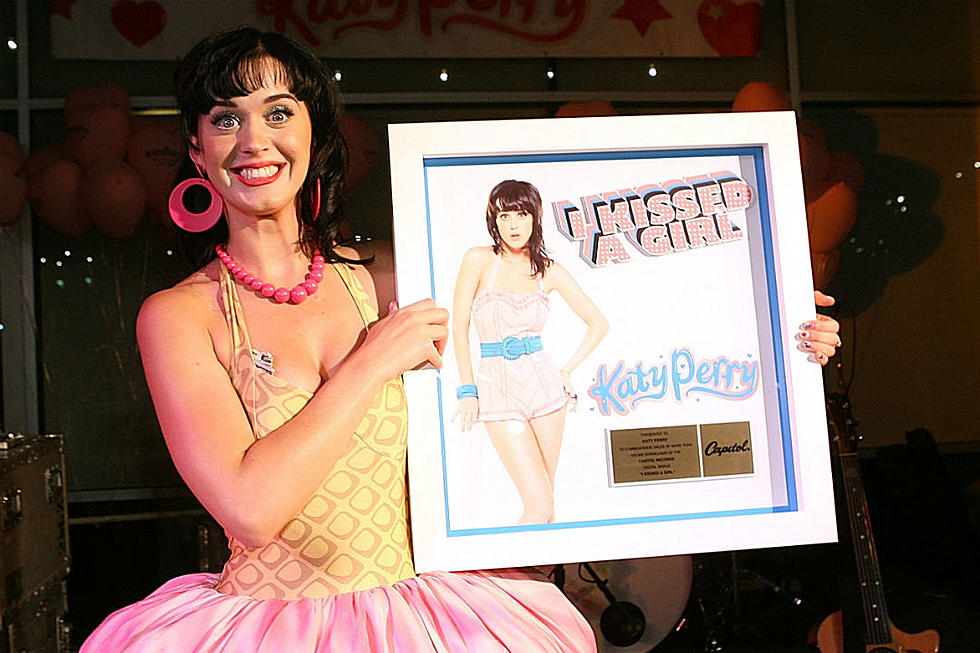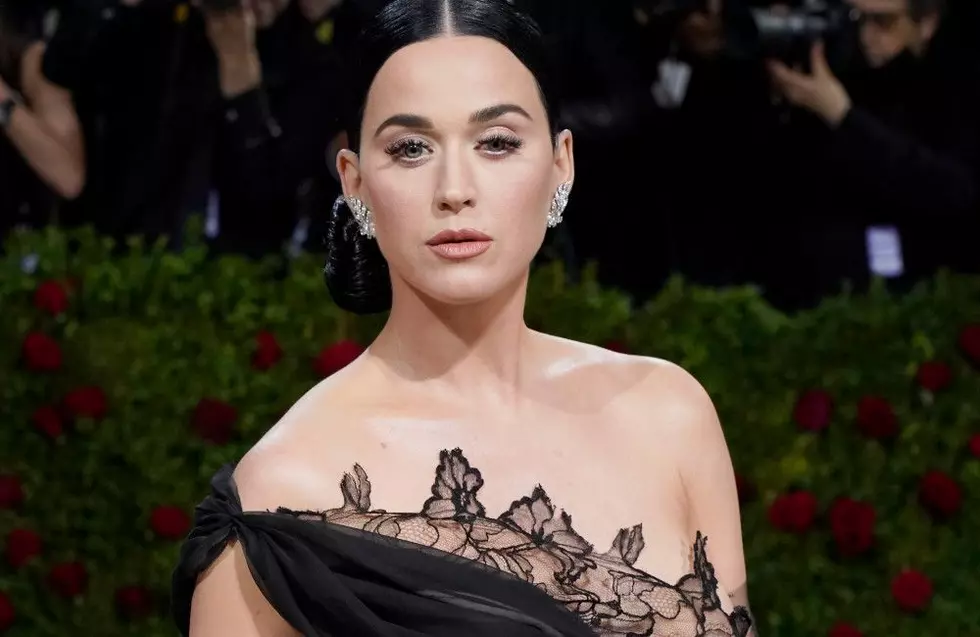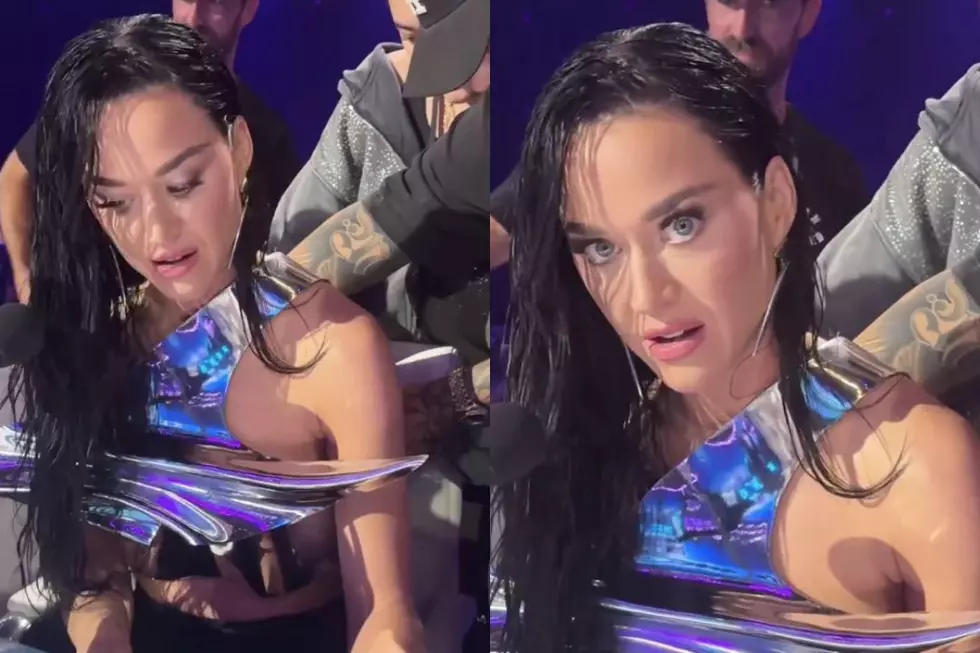
10 Years Ago, Katy Perry’s ‘I Kissed a Girl’ Outraged Pop Critics
In 2018, American Idol judge Katy Perry makes headlines for championing diversity, doing away with labels and serving as one of pop's most public-facing crusaders for self-acceptance.
Need convincing? Look how hard she pushed for Ada Vox — a frontrunner on Idol's 16th season — to advance to the competition's Top 10 round, even though the voting public had failed to give the contestant, a drag queen, the necessary support.
“We stand for truth and for justice," Perry said, lauding Vox for her braveness, all the while chiding the public for their shortsightedness and implicit judgments in aiming to leave Vox behind.
Pair the moment against Perry's introduction to pop music 10 years ago, though, and you'll have developed starkness that's as blinding as an eclipse.
On April 28, 2008, Perry — then 23 —tore onto radio charts with "I Kissed a Girl," the lead single from her second album One of the Boys (her first LP was a largely ignored acoustic Christian collection). With the help of Dr. Luke and Max Martin, the track became the 1,000th song to reach No. 1 on the Billboard Hot 100, where it stayed for seven weeks. And by autumn — and thanks to the song's beat-you-over-the-head provocations — Perry had set into motion a career as contradictory mix of doe-eyed naïveté and unambiguous sexual dynamism.
Long story short, it's worked in her favor.
Still, while "I Kissed a Girl" was a massive commercial success, it was on the receiving end of a particularly serious critical bitch-slap.
The song, which rests on the infamous lyrics: "I kissed a girl and I liked it / The taste of her cherry chap stick / I kissed a girl just to try it / I hope my boyfriend don't mind it," was perhaps most concisely described by Vulture in 2008 as "a cheap grab for attention." And that was just the beginning.
On one hand, critics panned the song for commodifying homosexuality, insisting that Perry usurped the plight of marginalized people to shock radio listeners into sales. And many took particular offense that Perry sang about kissing women, but didn't actually follow-through in the video, making the tacit point that while it was fine to goof about same-sex lip-locking, it was still somehow illicit and sinful to actually perform the act.
Slate, which gave Perry's One of the Boys album two out of five stars, said the song "isn't problematic because it promotes homosexuality, but because its appropriation of the gay lifestyle exists for the sole purpose of garnering attention — both from Perry's boyfriend and her audience." The site even questioned whether the single was a work of out and out homophobia.
And feminist and Gossip frontwoman Beth Ditto more harshly observed that the song was a “boner dyke anthem for straight girls who like to turn guys on by making out or, like, faking gay,” adding Perry was "just riding on the backs of our culture, without having to pay any of the dues and not being actually lesbian or anything at all.”
Appropriation aside, other critics found the track to be more fundamentally hollow and downmarket. If it wasn't offensive to gay men and women for its objectification of the community, then it more simply stunk for relying on gimmicky tricks.
As The Guardian wrote: "Perhaps the problem here is not that Perry is particularly offensive. Maybe the problem is just that her lowest common denominator reference points are a bit stupid — part of a Perez Hiltonisation of popular culture."
Then, there was the argument that "I Kissed A Girl" was a straight-up work of antifeminism, and encouraged women to forfeit any agency for the purpose of arousing men and making a scene.
Feministe took Perry to task in a particularly scathing review, noting: "So we have faux homosexuality that plays into the male gaze with a video full of women in fishnets and underwear, gyrating and having giggly pillow fights, all while not actually kissing each other. The absence of any kissing, while nice because that’s one less titillation for the Male Gaze, drives the point home that this song and dance is really just about a male fantasy, having nothing to do with the desires of women."
It took a decade, but a post-woke Perry admitted earlier this year that the song had not aged well, and said that if she could go back and change the course of her career, she'd have adjusted her launchpad.
"We’ve really changed, conversationally, in the past 10 years. We’ve come a long way. Bisexuality wasn’t as talked about back then, or any type of fluidity,” she told Glamour in February. “If I had to write that song again, I probably would make an edit on it...Lyrically, it has a couple of stereotypes in it. Your mind changes so much in 10 years, and you grow so much. What’s true for you can evolve.”
Happy 10 years, Katy. And cheers to your evolution.
Katty Perry's Most Controversial Lyrics + Performances
More From PopCrush









